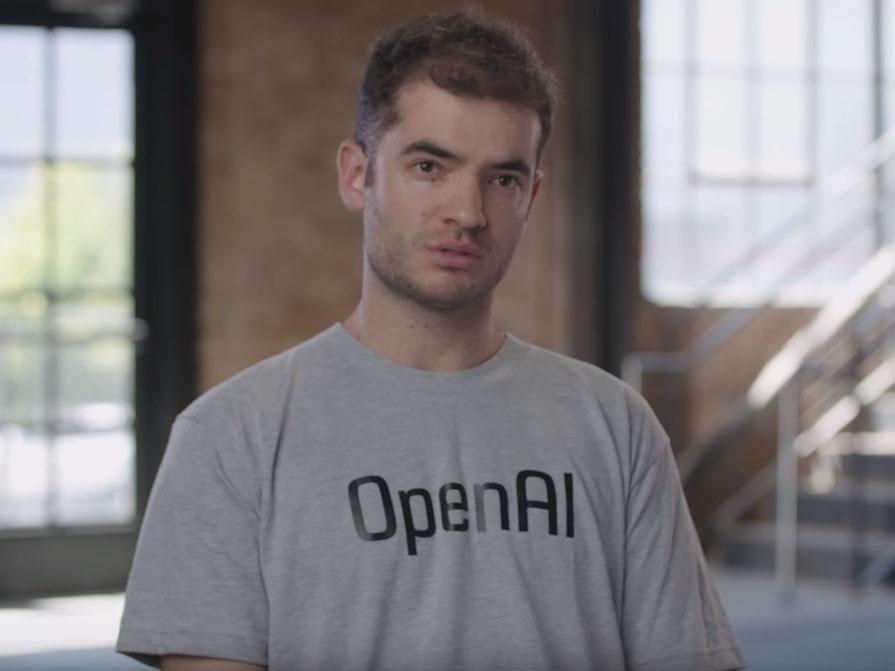AI researchers earning over $1m at non-profit organisations
Salaries for top researchers soar as there are not many people who understand esoteric technology and thousands of companies need knowledgable employees

One of the poorest kept secrets in Silicon Valley has been the huge salaries and bonuses that experts in artificial intelligence can command. Now, a little-noticed tax filing by a research lab called OpenAI has made some of those eye-popping figures public.
OpenAI paid its top researcher, Ilya Sutskever, more than $1.9m (£1.35m) in 2016. It paid another leading researcher, Ian Goodfellow, more than $800,000 (£570,000) – even though he was not hired until March of that year. Both were recruited from Google.
A third big name in the field, the roboticist Pieter Abbeel, made $425,000 (£302,000) , though he did not join until June 2016, after taking a leave from his job as a professor at the University of California, Berkeley. Those figures all include signing bonuses.
The figures listed on the tax forms, which OpenAI is required to release publicly because it is a non-profit, provide new insight into what organisations around the world are paying for AI talent. But there is a caveat: the compensation at OpenAI may be underselling what these researchers can make, since as a non-profit it cannot offer stock options.
Salaries for top AI researchers have skyrocketed because there are not many people who understand the technology and thousands of companies want to work with it. Element AI, an independent lab in Canada, estimates that 22,000 people worldwide have the skills needed to do serious AI research – about double from a year ago.
“There is a mountain of demand and a trickle of supply,” said Chris Nicholson, the chief executive and founder of Skymind, a startup working on AI.
That raises significant issues for universities and governments. They also need AI expertise, both to teach the next generation of researchers and to put these technologies into practice in everything from the military to drug discovery. But they could never match the salaries being paid in the private sector.
In 2015, Elon Musk, the chief executive of the electric car maker Tesla and other well-known figures in the tech industry created OpenAI and moved it into offices just north of Silicon Valley in San Francisco. They recruited several researchers with experience at Google and Facebook, two of the companies leading an industry wide push into artificial intelligence.
In addition to salaries and signing bonuses, the internet giants typically compensate employees with sizable stock options – something that OpenAI does not do. But it has a recruiting message that appeals to idealists: it will share much of its work with the outside world and it will consciously avoid creating technology that could be a danger to people.
“I turned down offers for multiple times the dollar amount I accepted at OpenAI,” Mr Sutskever said. “Others did the same.” He said he expected salaries at OpenAI to increase as the organisation pursued its “mission of ensuring powerful AI benefits all of humanity”.
OpenAI spent about $11m (£7.8m) in its first year, with more than $7m (£5m) going to salaries and other employee benefits. It employed 52 people in 2016.
People who work at major tech companies or have entertained job offers from them have told The New York Times that AI specialists with little or no industry experience can make between $300,000 (£214,000) and $500,000 (£356,000) a year in salary and stock. Top names can receive compensation packages that extend into the millions.
Some researchers may command higher pay because their names carry weight across the AI community and they can help recruit other researchers.
Mr Sutskever was part of a three-researcher team at the University of Toronto that created key so-called computer vision technology. Mr Goodfellow invented a technique that allows machines to create fake digital photos that are nearly indistinguishable from the real thing.
“When you hire a star, you are not just hiring a star,” Mr Nicholson of the startup Skymind said. “You are hiring everyone they attract. And you are paying for all the publicity they will attract.”
Though the pool of available AI researchers is growing, it is not growing fast enough. “If anything, demand for that talent is growing faster than the supply of new researchers, because AI is moving from early adopters to wider use,” Mr Nicholson said.
That means it can be hard for companies to hold on to their talent. Last year, after only 11 months at OpenAI, Mr Goodfellow returned to Google. Mr Abbeel and two other researchers left the lab to create a robotics startup, Embodied Intelligence. (Mr Abbeel has since signed back on as a part-time adviser to OpenAI). And another researcher, Andrej Karpathy, left to become the head of AI at Tesla, which is also building autonomous driving technology.
In essence, Musk was poaching his own talent. Since then, he has stepped down from the OpenAI board, with the lab saying this would allow him to “eliminate a potential future conflict”.
The New York Times
Join our commenting forum
Join thought-provoking conversations, follow other Independent readers and see their replies
Comments
Bookmark popover
Removed from bookmarks